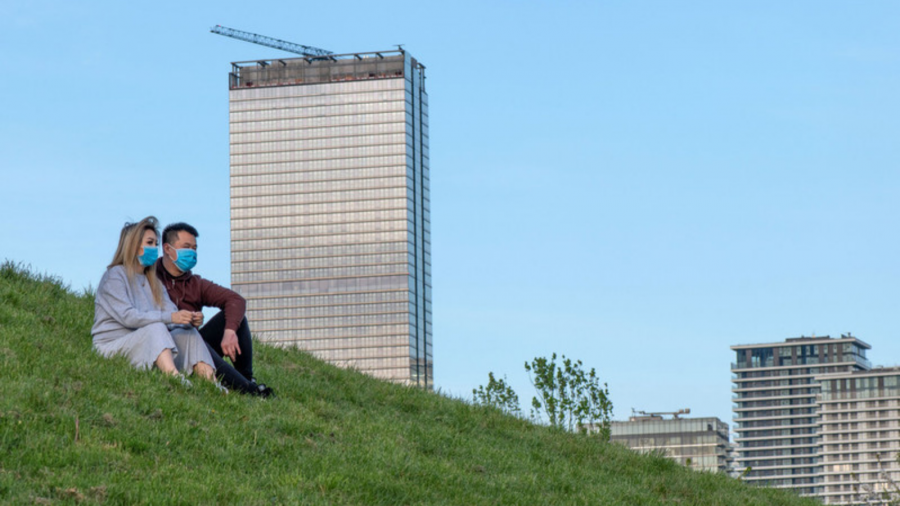Individuals in England reduced social contacts by up to 75% during the COVID-19 pandemic
2 March 2022 London School of Hygiene & Tropical Medicine London School of Hygiene & Tropical Medicine https://lshtm.ac.uk/themes/custom/lshtm/images/lshtm-logo-black.png
Transmission of respiratory viruses depends partly on the rate of close social contacts in a population, according to a new study published in PLOS Medicine.
The study, led by the London School of Hygiene & Tropical Medicine (LSHTM) with King’s College London and Hasselt University, suggests that during the most restrictive period of lockdown in the United Kingdom, the number of reported contacts decreased by 75% from pre-pandemic levels.
Public health policies imposed during the COVID-19 pandemic aimed to curb virus transmission through reduced social contact. However, the impact of these policies over time has not been quantified.
To estimate social interactions in England from March 2020-March 2021, the team conducted a cross-sectional study of 19,914 participants aged 18-59, as well as parents completing the survey on behalf of their children under age 18, who voluntarily responded to online surveys about their demographics, behaviour, and perceptions of personal risk with regard to the pandemic. They then used statistical analyses to calculate the average number of daily contacts reported by participants.
They found that during the most restrictive lockdowns in the UK, adults over 17 years of age reduced the number of people they were in contact with by 75%. Throughout the year, during less stringent policies, people continued to reduce their social contacts, and only ever reached 50% of pre-pandemic levels.
Amy Gimma, first author from LSHTM, said: “We launched the CoMix social contact and behavioural study on 24 March 2020 to capture the changes in social contacts, risk perception, and other behaviours. This study quantifies changes in epidemiologically relevant contact behaviour for one full year of the COVID-19 pandemic in England and can be used to inform future outbreak response and can be applied to transmission of other infectious diseases, particularly for a large-scale pandemic.
“Social contacts play a key role in the transmission of respiratory viruses, such as COVID-19, and data from the CoMix survey helps researchers, policymakers, and the general public understand how people have changed their social contacts throughout the pandemic. Understanding how and where people are making the most contacts, such as at work or in educational settings, provides insight into where contacts can be reduced when we need to slow transmission.”
However, the study had some limitations; all data were self-reported, which may have contributed to over- or underestimating individuals’ number of contacts. In addition, future research is needed to apply these findings to transmission data from 2021-2022.
Publication
Amy Gimma et al. Changes in social contacts in England during the COVID-19 pandemic between March 2020 and March 2021 as measured by the CoMix survey: A repeated cross-sectional study. PLOS Medicine. DOI: 10.1371/journal.pmed.1003907
Our postgraduate taught courses provide health practitioners, clinicians, policy-makers, scientists and recent graduates with a world-class qualification in public and global health.
If you are coming to LSHTM to study a distance learning programme (PG Cert, PG Dip, MSc or individual modules) starting in 2024, you may be eligible for a 5% discount on your tuition fees.
These fee reduction schemes are available for a limited time only.